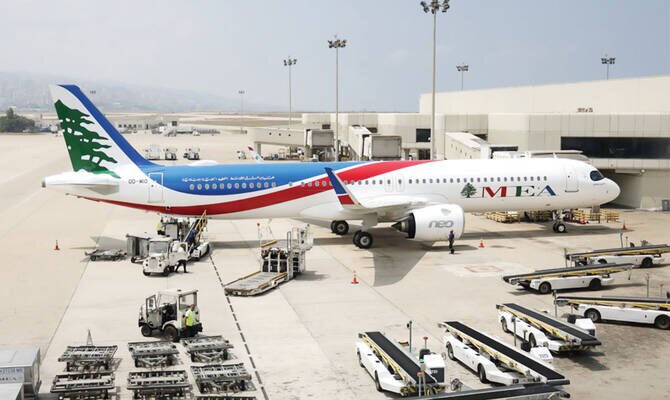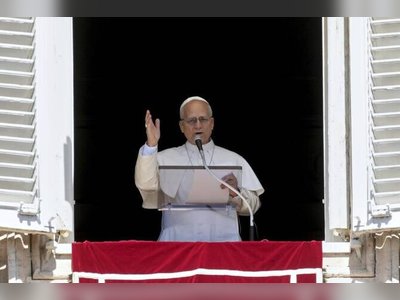
Lebanon's Middle East Airlines Plans Low-Cost Subsidiary Amid Economic Challenges
The flag carrier aims to launch a low-cost subsidiary to serve EU and Middle Eastern destinations.
Middle East Airlines (MEA), Lebanon’s national carrier, plans to establish a low-cost subsidiary as part of its strategy to overcome the challenges posed by an economic crisis.
The airline, wholly owned by Banque du Liban, the central bank, is seeking to expand into the budget airline market in Europe and the Middle East, a move that could potentially revitalize Lebanon’s aviation sector.
The proposal for MEA’s low-cost subsidiary comes amid soaring ticket prices and increased competition from budget carriers such as Wizz Air Abu Dhabi.
Despite these challenges, analysts believe that the introduction of a low-cost carrier by MEA could have a positive impact on the airline and offer relief to travelers affected by high airfares.
Jassem Ajaka, an economist and university professor, pointed out that MEA has a monopoly on direct flights, but anticipates increased competition as part of negotiations with the International Monetary Fund (IMF) which aim to liberalize various sectors.
The decision to launch a low-cost subsidiary is seen by some as a strategic move to maintain MEA’s position in the market.
Travelers such as Ziad Fino, who left Lebanon during the 2019 crisis, have been forced to cut back on their travel due to rising airfares.
This has led many to seek alternative routes and modes of travel, resulting in a significant burden for MEA.
One of the key challenges facing MEA is operating within an unstable economic environment marked by hyperinflation, fuel shortages, and a collapsing currency.
The airline aims to overcome these obstacles through cost efficiency, high-frequency routes, and digital-first booking methods.
In order to become operational, MEA’s low-cost subsidiary will need to fulfill specific regulatory requirements.
Kamil Al-Awadhi, the International Air Transport Association (IATA) regional vice president for Africa and the Middle East, explained that IATA Operational Safety Audit Program certification is necessary for any new airline looking to join the IATA membership.
The launch of a budget airline in Lebanon comes as neighboring countries have already established successful low-cost carriers such as Wizz Air Abu Dhabi, Flydubai, flynas, Jazeera Airways, and Salam Air.
These airlines thrive by offering cost-efficient travel options, high-frequency routes, and digital-first booking processes – something MEA has struggled with due to economic constraints.
MEA has ordered nine new aircraft, including long-range Airbus A321XLRs, in an effort to expand its fleet and open up new routes.
However, delivery delays have highlighted broader industry struggles, while the airline also faces challenges at Beirut’s airport, which is strained beyond its capacity.
MEA is pushing for a second terminal through a public-private partnership, but similar plans were previously scrapped over corruption claims.
The success of MEA’s low-cost subsidiary will depend on several factors, including travelers’ willingness to trust a state-linked budget carrier and the airline’s ability to navigate Lebanon’s unstable economic environment.
As travel remains expensive for many, the need for affordable air travel options in the region remains high.
The airline, wholly owned by Banque du Liban, the central bank, is seeking to expand into the budget airline market in Europe and the Middle East, a move that could potentially revitalize Lebanon’s aviation sector.
The proposal for MEA’s low-cost subsidiary comes amid soaring ticket prices and increased competition from budget carriers such as Wizz Air Abu Dhabi.
Despite these challenges, analysts believe that the introduction of a low-cost carrier by MEA could have a positive impact on the airline and offer relief to travelers affected by high airfares.
Jassem Ajaka, an economist and university professor, pointed out that MEA has a monopoly on direct flights, but anticipates increased competition as part of negotiations with the International Monetary Fund (IMF) which aim to liberalize various sectors.
The decision to launch a low-cost subsidiary is seen by some as a strategic move to maintain MEA’s position in the market.
Travelers such as Ziad Fino, who left Lebanon during the 2019 crisis, have been forced to cut back on their travel due to rising airfares.
This has led many to seek alternative routes and modes of travel, resulting in a significant burden for MEA.
One of the key challenges facing MEA is operating within an unstable economic environment marked by hyperinflation, fuel shortages, and a collapsing currency.
The airline aims to overcome these obstacles through cost efficiency, high-frequency routes, and digital-first booking methods.
In order to become operational, MEA’s low-cost subsidiary will need to fulfill specific regulatory requirements.
Kamil Al-Awadhi, the International Air Transport Association (IATA) regional vice president for Africa and the Middle East, explained that IATA Operational Safety Audit Program certification is necessary for any new airline looking to join the IATA membership.
The launch of a budget airline in Lebanon comes as neighboring countries have already established successful low-cost carriers such as Wizz Air Abu Dhabi, Flydubai, flynas, Jazeera Airways, and Salam Air.
These airlines thrive by offering cost-efficient travel options, high-frequency routes, and digital-first booking processes – something MEA has struggled with due to economic constraints.
MEA has ordered nine new aircraft, including long-range Airbus A321XLRs, in an effort to expand its fleet and open up new routes.
However, delivery delays have highlighted broader industry struggles, while the airline also faces challenges at Beirut’s airport, which is strained beyond its capacity.
MEA is pushing for a second terminal through a public-private partnership, but similar plans were previously scrapped over corruption claims.
The success of MEA’s low-cost subsidiary will depend on several factors, including travelers’ willingness to trust a state-linked budget carrier and the airline’s ability to navigate Lebanon’s unstable economic environment.
As travel remains expensive for many, the need for affordable air travel options in the region remains high.











